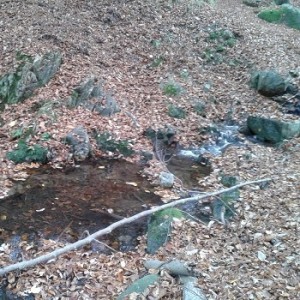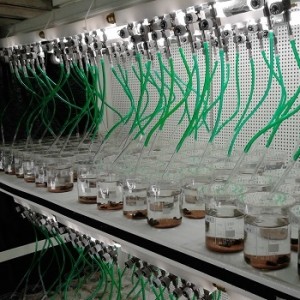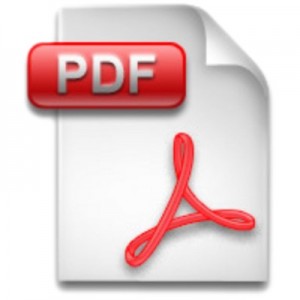In this post, the team “Functional Aquatic Ecotoxicology” offers another thesis topic.
What is the relative importance of diet-related effects and waterborne toxicity of the fungicide azoxystrobin for the amphipod leaf-shredder Gammarus fossarum?

Stream with leaf litter accumulations (photo by M. Konschak)
Leaf litter is a major source of energy and nutrients for the biocenosis in streams with forested catchments. In these aquatic ecosystems macroinvertebrate leaf-shredders provide critical functions by transforming the leaves into fine particulate organic matter, which is an important food source for collecting macroinvertebrates, and as an important prey for predators. Antimicrobial substances such as fungicides can, however, affect shredders and their functions through waterborne exposure and by affecting the food quality of leaf material. This MSc thesis aims to assess the importance of these pathways using the model fungicide azoxystrobin, the amphipod-shredder Gammarus fossarum (Crustacea), and a well-established 2×2 factorial test design.
For more information regarding the master thesis, see the pdf file:
Thesis type: MSc
Start: flexible
Prior knowledge required: no

Experimental set-up (photo by M. Konschak)
If you are interested or have any questions, just drop one of us an email:
Marco Konschak konschak@uni-landau.de
Patrick Baudy baudy@uni-landau.de
Dr. Mirco Bundschuh bundschuh@uni-landau.de
Jochen Zubrod zubrod@uni-landau.de

